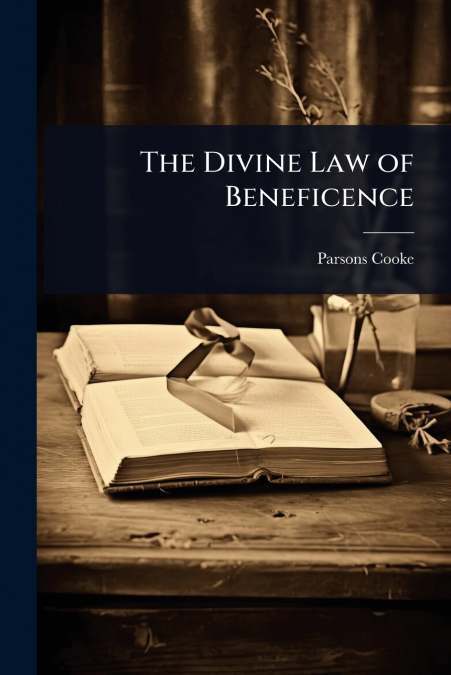
Parsons Cooke
In 'The Divine Law of Beneficence,' Parsons Cooke explores the theological and philosophical underpinnings of benevolence as a moral imperative. Cooke delves into the concept of beneficence as a divine law, examining its implications for human conduct and societal well-being. He explores the nature of moral obligation, the role of reason and revelation in ethical decision-making, and the practical application of benevolent principles in various spheres of life. This work presents a reasoned and theologically grounded argument for the importance of beneficence, inviting readers to consider the profound impact of moral action on individual and collective flourishing. It provides a valuable insight into 19th-century moral and theological discourse.This work has been selected by scholars as being culturally important, and is part of the knowledge base of civilization as we know it. This work was reproduced from the original artifact, and remains as true to the original work as possible. Therefore, you will see the original copyright references, library stamps (as most of these works have been housed in our most important libraries around the world), and other notations in the work.This work is in the public domain in the United States of America, and possibly other nations. Within the United States, you may freely copy and distribute this work, as no entity (individual or corporate) has a copyright on the body of the work.As a reproduction of a historical artifact, this work may contain missing or blurred pages, poor pictures, errant marks, etc. Scholars believe, and we concur, that this work is important enough to be preserved, reproduced, and made generally available to the public. We appreciate your support of the preservation process, and thank you for being an important part of keeping this knowledge alive and relevant.